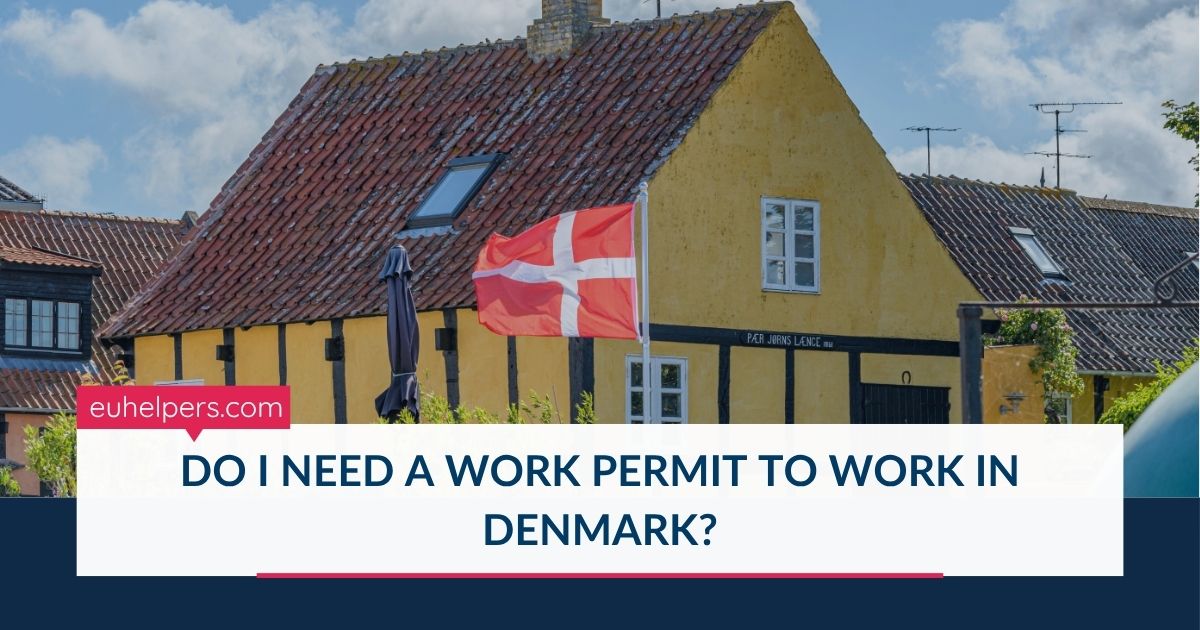
Denmark, known for its strong economy, excellent work-life balance, and high standard of living, is a popular destination for foreign professionals. However, before starting work in Denmark, it’s crucial to understand whether you need a work permit. The requirement largely depends on your nationality, type of employment, and the length of your stay.
Who Does Not Need a Work Permit in Denmark?
1. Citizens of Nordic Countries
If you are a citizen of Sweden, Norway, Finland, or Iceland, you can live and work in Denmark without needing a residence or work permit.
The Nordic countries have a common labor market agreement that allows free movement of workers among them.
2. Citizens of EU/EEA Countries or Switzerland
If you are from the European Union (EU), the European Economic Area (EEA), or Switzerland, you can also work in Denmark without a work permit.
However, if you plan to stay for more than three months, you must apply for an EU residence document or registration certificate from the Danish Agency for International Recruitment and Integration (SIRI).
Who Needs a Work Permit in Denmark?
If you are not a citizen of a Nordic country, the EU, EEA, or Switzerland, you must obtain a residence and work permit before you start working in Denmark.
This rule applies to nationals of India, the Philippines, the USA, Canada, Pakistan, Nigeria, and other non-EU countries.
Without a valid permit, you cannot legally work or receive a salary in Denmark.
Exceptions and Short-Term Work Permits
Denmark offers some exemptions and short-term permits for certain professionals and work assignments:
-
Short-term business visits or guest teaching – Certain assignments (like attending meetings, training, or teaching) may not require a full work permit if they last less than 90 days.
-
Intra-company transfers – If you work for a company abroad that is part of a group with a Danish branch (with at least 50 employees), you may work in Denmark for two short periods (up to 15 working days each) within 180 days without a work permit.
-
Researchers and guest lecturers – May be eligible for exemptions under specific programs.
Popular Work Permit Schemes in Denmark
Non-EU nationals can apply for a Danish work permit under several programs depending on their qualifications and job type:
-
Pay Limit Scheme – For high-income professionals offered an annual salary above a specific limit (around DKK 448,000 in 2025).
-
Positive List for Skilled Workers – For jobs experiencing labor shortages (like engineers, IT specialists, healthcare professionals).
-
Fast-track Scheme – For employees of certified companies that can expedite the work permit process.
-
Researcher and PhD Schemes – For academic professionals and researchers working with Danish institutions.
Each scheme has its own eligibility criteria, required documents, and processing times.
How to Apply for a Danish Work Permit
If you need a work permit, follow these steps:
-
Secure a job offer from a Danish employer.
-
Apply online via the official Danish immigration website — Ny i Danmark (New to Denmark).
-
Submit your documents (passport, employment contract, proof of salary, and qualifications).
-
Wait for processing by the Danish Agency for International Recruitment and Integration (SIRI).
Processing usually takes 1 to 3 months, depending on the scheme.
Penalties for Working Without a Permit
Working in Denmark without a valid permit is considered illegal and can result in:
-
Fines for both employee and employer
-
Deportation or entry bans for foreign nationals
It’s always best to confirm your visa status before accepting a job offer.
Whether you need a work permit in Denmark depends on your nationality. EU/EEA and Nordic citizens can work freely, while non-EU nationals must apply for a residence and work permit before beginning employment. Denmark’s work permit system is transparent and well-structured, making it easier for skilled professionals to build a career in one of Europe’s most dynamic economies.
